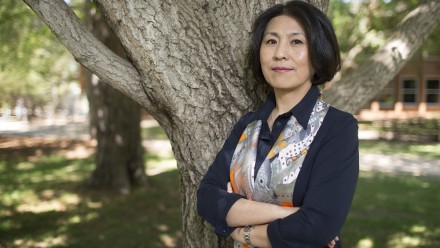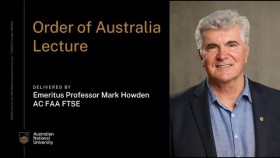How can we make our cities more climate friendly?
One researcher who’s working all out to win this battle is Professor Xuemei Bai of the ANU Fenner School of Environment & Society.
Increasing urbanisation is one of the biggest social transformations in the world, with enormous social, economic and environmental impacts. For example about 75% of CO₂ emissions from final energy use can currently be attributed to cities and this share is likely to grow as urbanisation further intensifies.
Not only are more people now living in cities, but there’s also been a huge increase in the numbers of people living in slum areas. By 2050 slum dwellers will have grown to about 3 billion people, illustrating the magnitude of the problem.
Prof Bai, who was awarded the prestigious Volvo Environment Prize in Oct 2018, has some key messages.
“Cities are increasingly feeling the effects of extreme weather,” she said. “Many of them are particularly vulnerable as they’re located on the coast, on flood plains or in dry areas. So they must waste no time in taking action to address climate change.”
She emphasises the need to take a systems approach.
“It doesn’t make sense to look at preventing climate change (mitigation) and adapting to climate change separately,” she said. “Sometimes there can be trade-offs and sometimes they can have synergies, but it’s important to treat cities as a system and look at them together. Similarly we need to look at cities in terms of both the challenges and the solutions.”
She’s also very interested in looking at innovative practices in cities.
“Many cities are more advanced in taking action on climate change than their national governments. At the same time, there are also limitations to what cities can do alone. In fact, it’s really important for national governments to work together with cities in addressing climate change.”
Early this year, Prof Bai was appointed as a Lead Author for the Intergovernmental Panel on Climate Change (IPCC) 6th Assessment report (AR6) WG III. Prior to this, she led the development of the science vision for the first ever IPCC Cities and Climate Change Science Conference, which was held in Edmonton March 2017. The purpose of the conference was to identify a research agenda to steer the scientific community to produce more relevant research on cities and climate change, to better inform urban chapters of the AR6 and a planned Special Report on Cities in its next round of reporting (AR7, 2023-2027).
“There is a lot of enthusiasm already about this Cities’ Special Report,” said Prof Bai. “The IPCC Cities and Climate Change report will be a great opportunity to reinterrogate the research from the lens of cities, rather than from the separate lens of mitigation or adaptation.”
Prof Bai is particularly happy to be working in Canberra at the moment.
“The ACT is a frontrunner in terms of climate mitigation,” she said. “With 100% renewable electricity by 2020 and the Net Zero Emissions Strategy, Canberra is very advanced in terms of addressing climate change at a city level. But their work is not really reflected in international literature at the moment so I’ll certainly be encouraging my students to get it published internationally.”
Professor Bai’s work is focussed on exploring four main themes: the drivers & impacts of urbanisation; urban system structure, function & processes; cities & climate change; and urban sustainability experiments and transitions.
Three of her recent papers, ‘Six research priorities for cities and climate change’, ‘Locking in positive climate responses in cities’ and Experimenting towards low carbon cities: Policy evolution and nested structure of innovation can be found here.











